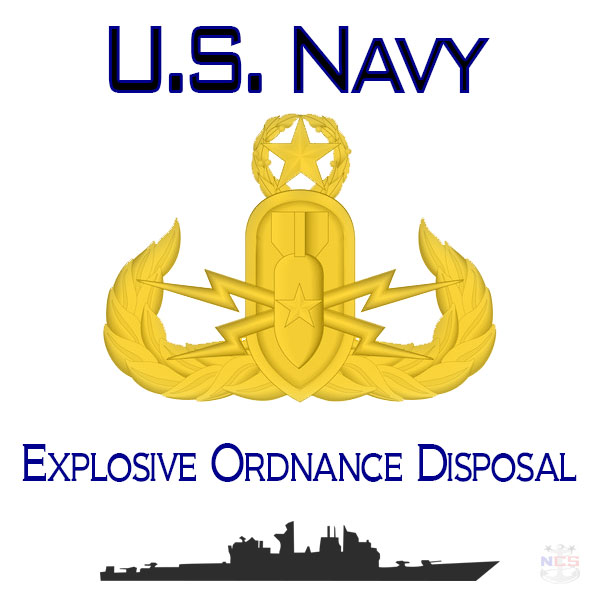EOD Officer Candidate School Program

The basic requirements for Officer Candidate indoctrination and training for appointment on active duty as an Ensign: 1190 (Training-Explosive Ordnance disposal). Unless explicitly stated, the provisions outlined shall apply to both the Active and Reserve Components. Waivers are not authorized except as noted.
Those selected will attend Officer Candidate School, Officer Training Command Newport, Rhode Island. Following commissioning, officers will receive orders to Naval School Explosive Ordnance Disposal for EOD pipeline training.
The Reserve Component Direct Commissioning Program is no longer being executed. All Full-Time Support (FTS; Designator 1147) and Selected Reserve (SELRES; Designator 1145) EOD Officers are recruited from within the active duty EOD Officer Community upon an officer's separation from active duty service. All officers accepted into either the FTS or RC EOD Officer Program must have their KG5 AQD - EOD Officer Warfare Qualification - and be designated an 1140 while on active duty.
EOD Officer Qualifications
Applicants must be a citizen of the United States -- this requirement cannot be waived. Applicants must at least 19 years old and of such an age that they will not have passed their 42th birthday at time of commissioning.
Education
Applicants must have a baccalaureate degree from a regionally accredited institution and must have a cumulative grade point average of 2.0 or higher on a 4.0 scale.
Marital/Dependency Status
No restrictions for application.
Physical
Applicants must meet physical standards for appointment as prescribed in the Manual of the Medical Department, Chapter 15, Section III, Articles 15-102 and 15-105, and as detailed in Department of Defense Directive 6130.3.
Candidates must meet the physical fitness weight and/or percentage of body fat standards at the time of application and at time of commissioning.
Applicants must be able to pass a Physical Screening Test per Military Personnel Manual 1220-410. Candidates should strive to achieve significantly more than the minimum standard.
Interview
In addition to the officer appraisal sheets available on the BUPERS 31 IE OCM website, an interview conducted by a qualified EOD officer (1140) recommending selection to the annual EOD officer accession board is required for all applicants. EOD commands should be the priority screening activity as they relate directly to the applicant's primary mission and capability.
The annual EOD officer accession board meets in September to pick the next fiscal year accessions. Board dates and interview times will be relayed to the candidates in advance. All complete accession packages will be reviewed by board members.
Indoctrination
electees will attend Officer Candidate School Officer Training Command Newport, RI. Following commissioning, officers will be assigned to designator specific training, as appropriate. The EOD officer training pipeline consists of over 24 months of high-risk training at Naval Diving and Salvage Training Center (NDSTC) in Panama City, Florida, Naval Schools Explosive Ordnance Disposal (NA VSCOLEOD) in Eglin Air Force Base, FL, Expeditionary Combat Skills School, Gulfport, MS, Airborne School, Ft. Benning, GA and Explosive Ordnance Disposal Training and Evaluation Unit One, San Diego, CA. Individuals commissioned who have completed EOD training and previously held Navy enlisted classification M02A/M03A/M04A will attend diving officer training at NDSTC only.
Active Duty Obligation
Those selected will incur a four-year full time, active duty obligation to commence on the date of commissioning. The balance of service to complete the required eight years of obligation may be served in a ready reserve status.
Commissioned active duty Navy Explosive Ordnance Disposal officers are paid allowances (BAH, BAS, etc. if eligible) and officer military basic pay based on years of service and paygrade.
